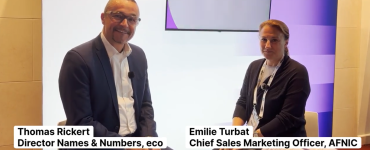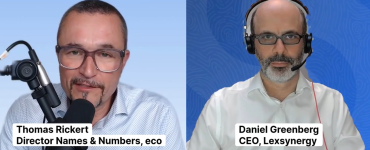Universal Acceptance Steering Group
Universal Acceptance is a foundational requirement for a truly multilingual Internet, one in which users around the world can navigate entirely in local languages. It is also the key to unlocking the potential of new generic top-level domains (gTLDs) to foster competition, consumer choice and innovation in the domain name industry. To achieve Universal Acceptance, Internet applications and systems must treat all TLDs in a consistent manner, including new gTLDs and internationalized TLDs. Specifically, they must accept, validate, store, process and display all domain names.
The Universal Acceptance Steering Group is a community-based team working to share this vision for the Internet of the future with those who construct this space: coders. The group’s primary objective is to help software developers and website owners understand how to update their systems to keep pace with an evolving domain name system (DNS).
The Work
Background: IDNA2008 in particular, and protocol-internationalization techniques for IETF protocols generally, rely on Unicode (normally, in UTF-8 on the wire). In order to decide (for protocol purposes) whether a Unicode code point may be used in a protocol, the IETF has depended on a technique of calculating “derived properties”. This technique uses code point properties in order to identify derived properties by which a code point may be considered valid for a given protocol. (For details, see RFCs 5891 and 5892 for IDNA, and RFC 7564 for the generalized technique, PRECIS.)
The reason for this approach was to create a way by which the IETF could identify appropriate code points for identifiers without needing to evaluate every Unicode code point for every protocol for every version of Unicode. The IETF has neither the resources nor the expertise to undertake such a project, and it is in any case not plain that the approach would provide the kinds of stability that are important for network identifiers. The IETF was relying on its understanding of Unicode assignment and normalization stability rules in order to design this system. In principle, the technique should yield Unicode version independence, which is extremely desirable since protocol-using applications generally do not have a way of learning which version of Unicode is available to them. 
It turns out that the IETF’s understanding of the assignment and normalization stability rules was not perfect (see https://tools.ietf.org/html/draft-klensin-idna-5892upd-unicode70-04 for some discussion). As a consequence, the IETF’s protocols are stuck on old versions of Unicode. Given that IDNA2008 and PRECIS were supposed to fix that Unicode version- dependency, this is a most unsatisfactory state of affairs.
The problem is made somewhat worse by a shortage of people who understand network protocols, internationalization, and Unicode; some occasional interpersonal frictions between participants in the IETF and members of the Unicode Technical Committee; and a shortage of people with time to devote to the effort.
What is needed is someone who can bridge these gaps and who is willing and able to devote the time necessary to forge a consensus on a way forward. Qualifications:
- Good knowledge of Unicode – particularly conventions for assignment of code points
- Expert understanding of Unicode properties
- Good understanding of naming in the DNS
- Good understanding of distributed authority in the DNS
- Ability to understand other network protocol needs
- Good understanding of IETF protocol development
- Ability to collaborate effectively with others on mailing lists
- Ability to forge consensus in groups with strongly-held divergent views
Next Steps
Please provide us with:
- A brief statement of interest and why you want to do this work and why we should want you to do this work
- An indication of expected start and turnaround time
- An indication of your approach
- A CV
- A sample of similar activity
- A rate (in US$) inclusive of all costs and the basis for the cost
- Full contact details
- Two referees
Deadline for receipt of expressions of interest: 23:00 UTC 15 May 2016
Send completed expressions to: don.hollander@icann.org
If you have any questions, please send those to don.hollander@icann.org. Please allow 24 hours for answers. We expect to reach out to a short list of candidates within two weeks of the closing time.



